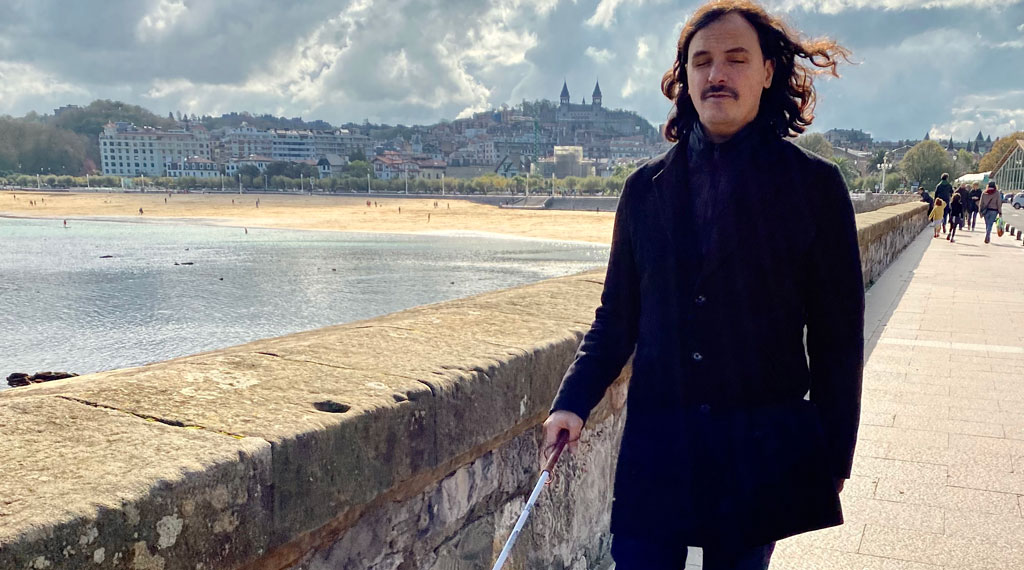
WORKSHOP ABOUT DJANGO REINHARDT’S MUSIC SPECIFICALLY FOR GUITARISTS
I will always start from and spend most time on good accompaniment. My father is one of the best rhythm guitar players I’ve ever met, and he told me when I was a kid “don’t even think of trying to play the theme, let alone a solo, if you cannot well accompany the tune.”I used to put it this way: a good rhythm section is like a beautiful mountain; the solos are the flowers on top. EVEN for more advanced groups, I’ll spend a lot of time on this, showing multiple ways of accompanying the same tune. Varying the tone quality of the plectrum stroke, realising how the length of each chord (left hand work) affects the drive and swing, how to vary shapes and chords without losing sight of the essence of the tune, and lastly fills and orchestration, ornamenting the rhythm playing as a soloist.
For me, working on solo playing starts from the knowledge of the theme and being able to invent variations on the melody, possibly looking at it in different keys etc. Then there are my restriction exercises. These are meant to stop us from falling back on habits and patterns without realising it. They’ll prevent us from talking when we have nothing to say. In short, they will keep the mind awake and force us to look where we haven’t looked yet for new inspiration.I’ll also continuously draw the student’s attention to the quality of sound, tone, vibrato, and dynamics as they are often overlooked where they are essential for good music, even more then inventive phrasing.
For beginner classes I’d work on understanding of basic practical harmony. Tonic, dominant, two-five-one etc. What is a minor seven chord and where to use it. Diminished chords and their correct use etc. We also would learn a simple theme, with accompaniment, and slowly learn how to not get lost in the structure, playing over the chords using only chord notes etc. For more advanced students, we will be looking at colours, Django liked to use some more modern phrases and alterations.
And last but not least I’ll push the students to not look at the left hand, to find the notes and chord shapes, but using the hearing. It is a faculty that can be trained just like any other. This will help the students to decipher licks and chord progressions from recordings and becoming much more self-assured and accomplished, ultimately not needing me to explain, what it is they are hearing.
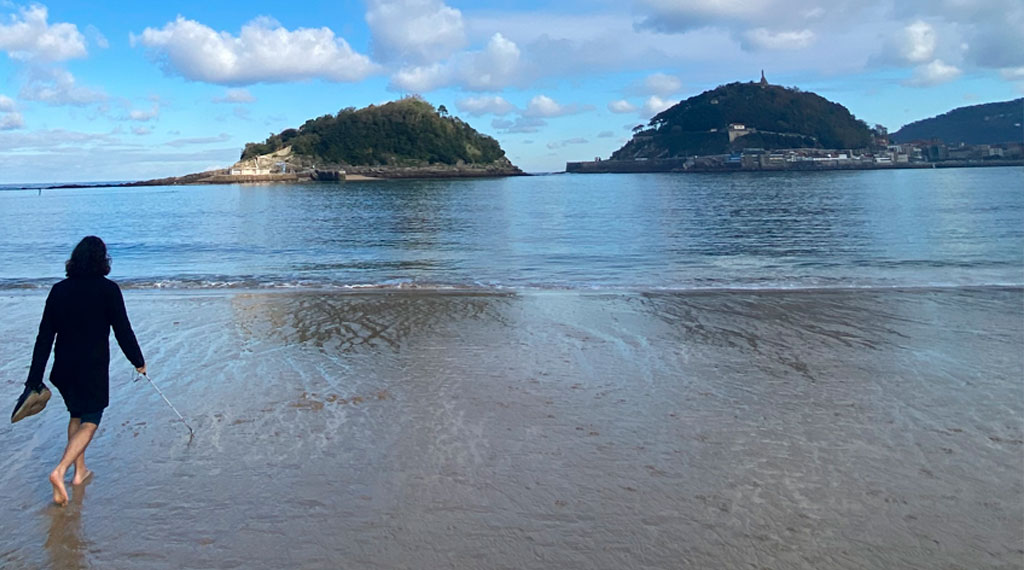
WORKSHOP ON JAZZ VIOLIN
The knowledge of chords and how they function is essential here. For beginners, we talk about tonic and dominant, two five one and what to play over these things. We find an easy tune to learn. Melody, a simple accompaniment and then we learn how to follow the structure of the tune, keeping track of where we are, using chord notes only…It goes without saying, that all we do, be it for beginners or advanced, is always in the biggest possible consciousness of tone, sound quality, dynamics, vibrato etc. For more advanced players, we’ll work on double stops, how to orchestrate the rhythm section as a violinist… For soloing, there are my restriction exercises, that should prevent us, from repeating what we have already made into habits and patterns and make us look closely at possibilities that we had overlooked in our practice before. Obviously, we’ll learn some existing phrases, trying to understand what makes them so good, we want to learn and use them. We’ll look at certain scales and substitutions that may inspire us…
Basically, we’ll try to discern what makes a composition beautiful to our ears, and how we can use this understanding to make our solos better…
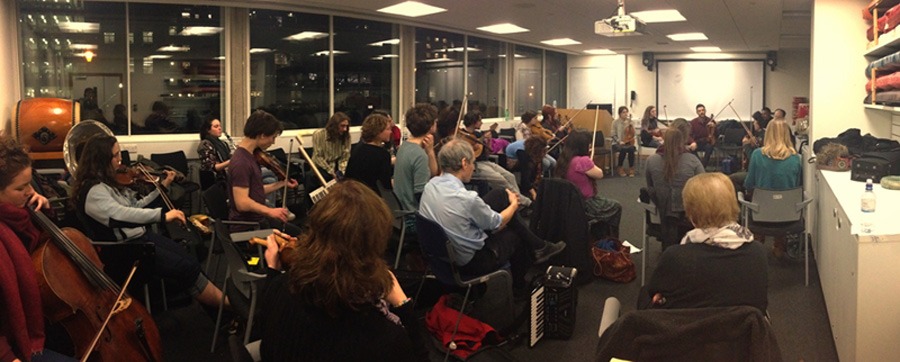
WORKSHOP MUSIC FROM KALOTASZEG AND SURROUNDINGS
When teaching this wonderful music, I work hard on stylistic elements. To start, we look at a melody, listen to it, memorise it and play it, introducing ornaments as we go. With more advanced groups, we look at many different ways to play the same melody. For beginners, I stick to one version. We always learn the harmony as well, and look for different possibilities to render the harmonies on violins, violas etc.Whilst working on different pieces I get to explain things like the three big repertoires of the region. The Hungarian one, the Romanian one and how the Gypsies are placed in all this. We talk about the social function of this mainly village music. Weddings, parties, burial’s, mourning, dancers and their needs, singers and their needs, etc. I talk about the different stages of the wedding, each with its specific rhythms and melodies. The various laments and when they are played etc. We even may look at some lyrics…
If there is more time, we can look at some more Romanian styles, even Southern Romanian pieces from the style called Lăutareasca. Here as-well, there are many different types of pieces. We explore the different rhythms, bowings, accompaniments, harmonies etc.
These workshops can be attended by violinists, viola players, double bass players, even cellos, guitars, clarinets. To avoid frustration with fellow students, I tend to ask, at least for group classes, that all students are confident in minimum the first three positions on violin. In short, that tuning is not the big issue. For people who are more beginners on their instruments, I prefer to organise private lessons…
Why all musicians should have an idea about how to create music out of thin air:
I am convinced that the ability to improvise helps any musician to make his or her performance much deeper, more felt and more convincing. This holds true, even when playing Beethoven’s violin concerto as the soloist, or a Brahms trio for that matter. Being able to improvise helps one to estimate and judge correctly the best choice for example volume, projection, tempo, colour… By improvising, we get a deeply rooted understanding of the basic corner stones of all music: Sound, pitch and time. Teaching musicians about improvisation can contain elements from a wide range of very different disciplines. As I see it, the main thing is, to teach people to listen to the music they are creating, while playing, acting according to decisions made by themselves as-well as the other players in the same instant. One could call this, instant composing.
To help people achieve these goals, I propose: Sessions about harmony, explaining the basics in simple words but most of all, explaining by practically playing and listening, much like when a child learns that the word hot means what it means by the physical experience of heat. This process can even involve learning a couple of melodies with their respective accompaniment and memorising all that. The imitation game: a process where short phrases will be proposed by one person and the group responding by repeating as exactly as possible what they’ve just heard. This exercise can have many extensions: for example change the phrase from major to minor, changing the rhythmic pattern whilst keeping the same notes etc Learning to recognise an impulse and how to act upon it. Composition games in groups of ideally 5 musicians with closed eyes, following a set of rules that enable us to structure the composition of the moment. Some tools for this can be: classical harmony, jazz harmony, solid understanding of time and rhythm, any repertoire knowledge, memory, ability to recognise and copy what one hears…
To help people achieve these goals, I propose: Sessions about harmony, explaining the basics in simple words but most of all, explaining by practically playing and listening, much like when a child learns that the word hot means what it means by the physical experience of heat. This process can even involve learning a couple of melodies with their respective accompaniment and memorising all that. The imitation game: a process where short phrases will be proposed by one person and the group responding by repeating as exactly as possible what they’ve just heard. This exercise can have many extensions: for example change the phrase from major to minor, changing the rhythmic pattern whilst keeping the same notes etc Learning to recognise an impulse and how to act upon it. Composition games in groups of ideally 5 musicians with closed eyes, following a set of rules that enable us to structure the composition of the moment.
Improvising is a form of composition. One is therefore firstly composer and only secondly musician. , …
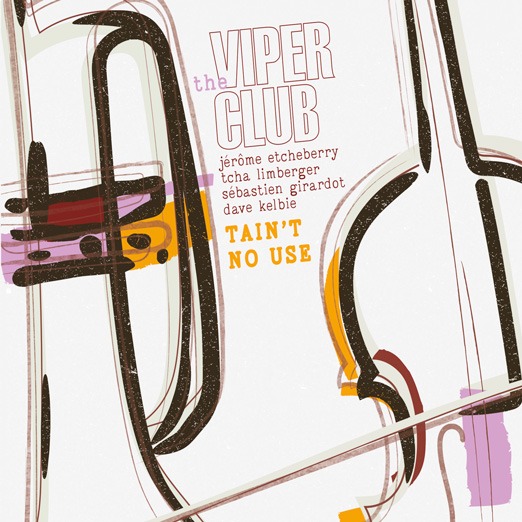
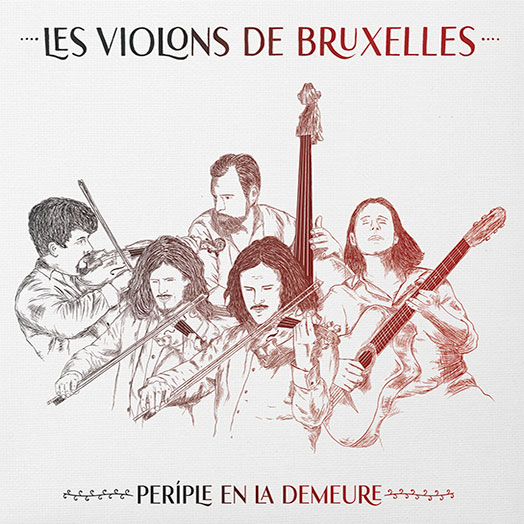
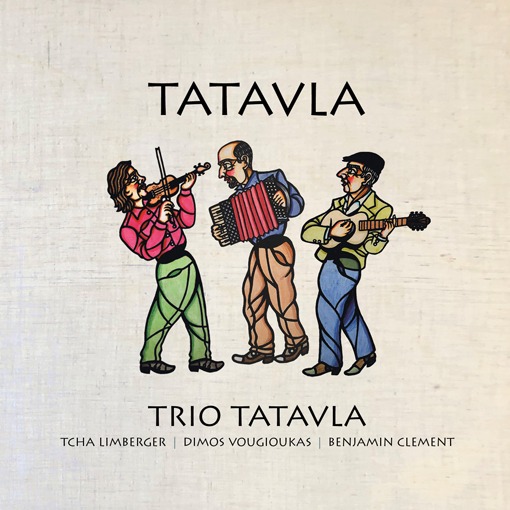
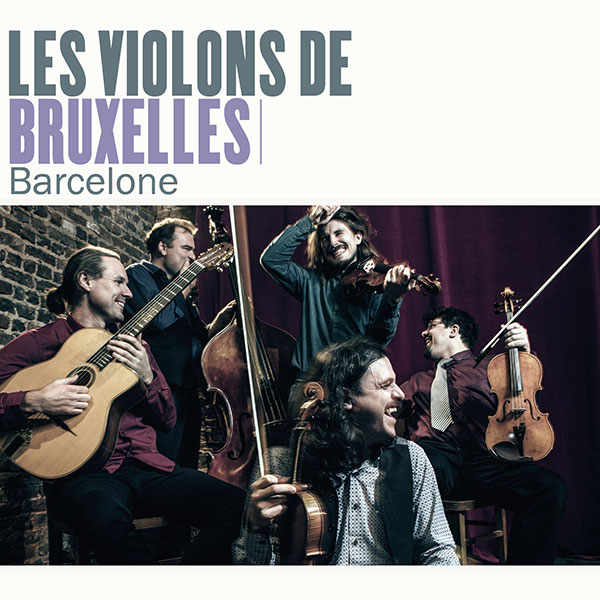
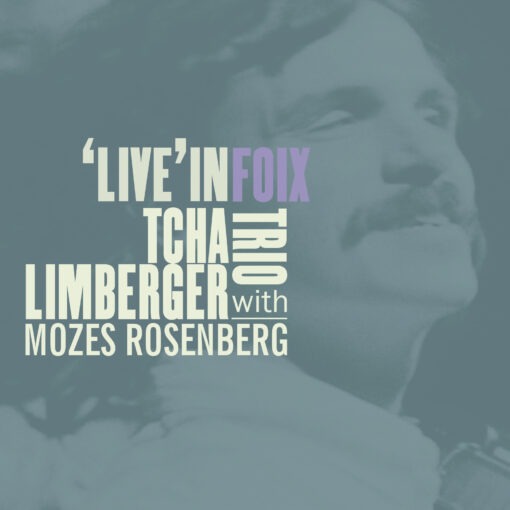
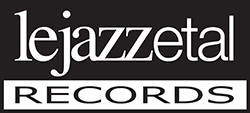
Comments are closed.